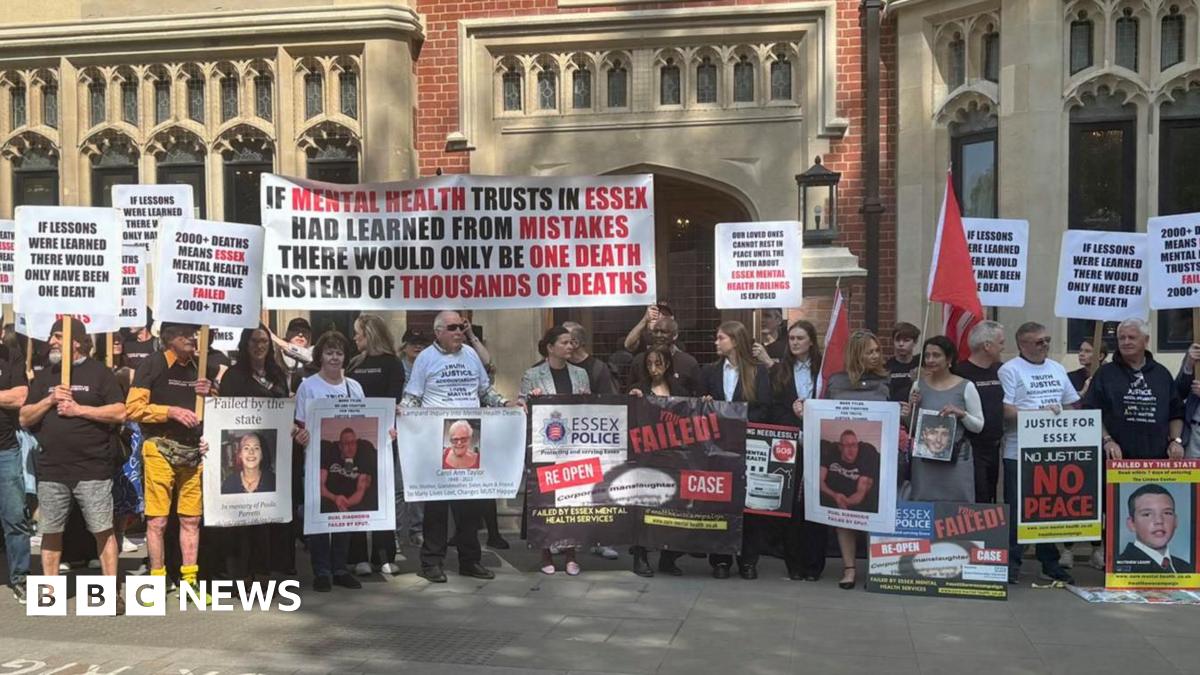Federal Budget Cuts Threaten Workplace Mental Health Initiatives for Construction and Healthcare Workers

Recent proposals for significant cuts to the U.S. Department of Labor's budget are raising serious concerns about the future of workplace mental health programs, particularly for high-risk professions like construction and healthcare. These initiatives, vital in addressing alarmingly high suicide rates and combating burnout, face potential disruption and scaling back. The proposed cuts could severely impact crucial support systems designed to protect the well-being of American workers.
The Crisis in Construction: A Silent Epidemic
The construction industry has long struggled with a disproportionately high suicide rate. Factors like demanding physical labor, long hours, job insecurity, and a culture that often discourages vulnerability contribute to a pervasive mental health crisis. Previously, federal programs have helped fund initiatives aimed at raising awareness, providing training for supervisors to recognize signs of distress, and connecting workers with mental health resources. Cuts would hamstring these efforts, potentially leading to a resurgence of the crisis and devastating consequences for individuals, families, and communities.
“We’ve made significant progress in reducing the stigma surrounding mental health in construction,” says Sarah Miller, a safety consultant specializing in the industry. “But that progress is fragile. Without continued funding for these programs, we risk losing ground and seeing more lives tragically lost.”
Healthcare Workers on the Brink: Burnout and Beyond
Healthcare workers, already stretched thin by the COVID-19 pandemic and ongoing staffing shortages, are facing unprecedented levels of burnout. The constant pressure, emotional toll, and long hours have taken a severe toll on their mental health. Federal initiatives have played a crucial role in providing support services, promoting resilience training, and addressing the systemic issues contributing to burnout. Reduced funding would leave healthcare workers even more vulnerable, potentially impacting patient care and exacerbating existing workforce challenges.
Dr. David Chen, a psychiatrist specializing in healthcare worker well-being, explains, “Healthcare is a deeply rewarding profession, but it’s also incredibly demanding. We need to invest in the mental health of our healthcare workforce, not cut back on it. Failure to do so will have far-reaching consequences for the entire healthcare system.”
The Ripple Effect: Economic and Social Costs
The consequences of neglecting workplace mental health extend far beyond individual suffering. Burnout and mental health issues lead to decreased productivity, increased absenteeism, higher healthcare costs, and a loss of skilled workers. Investing in preventative measures and support services is not just the right thing to do; it’s also economically sound.
Advocating for Change: What Can Be Done?
Labor unions, industry associations, and mental health advocates are urging Congress to reconsider the proposed budget cuts. They argue that investing in workplace mental health is an investment in the nation's workforce and economy. Raising awareness, lobbying for increased funding, and supporting legislation that prioritizes worker well-being are crucial steps in protecting the mental health of American workers.
The potential cuts highlight a critical need for a renewed focus on workplace mental health and a commitment to providing the resources necessary to support the well-being of all workers, particularly those in high-stress professions. The future of these vital programs, and the health of countless American workers, hangs in the balance.






